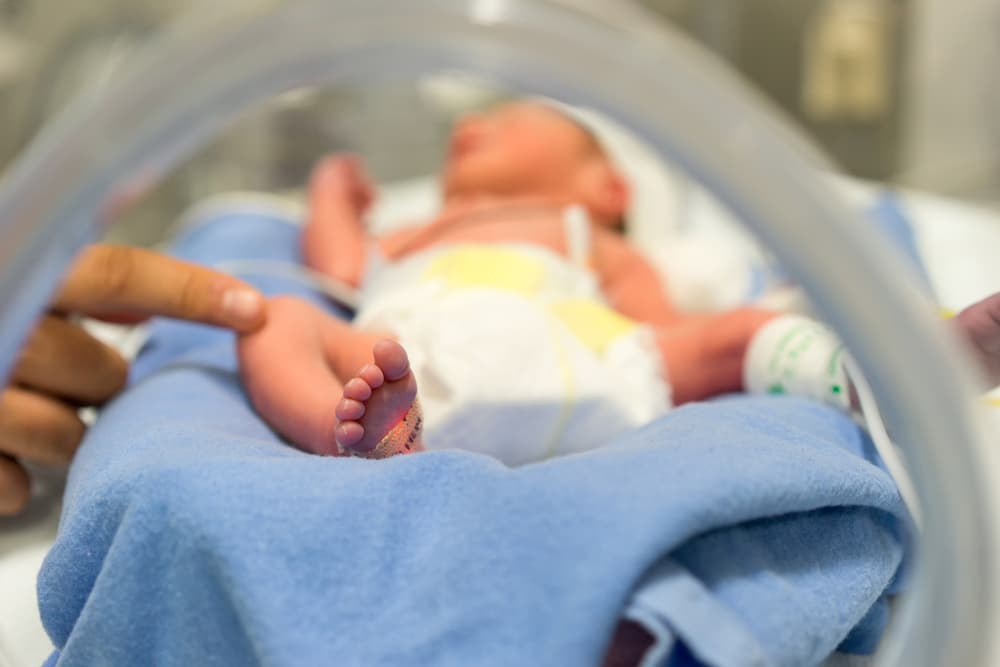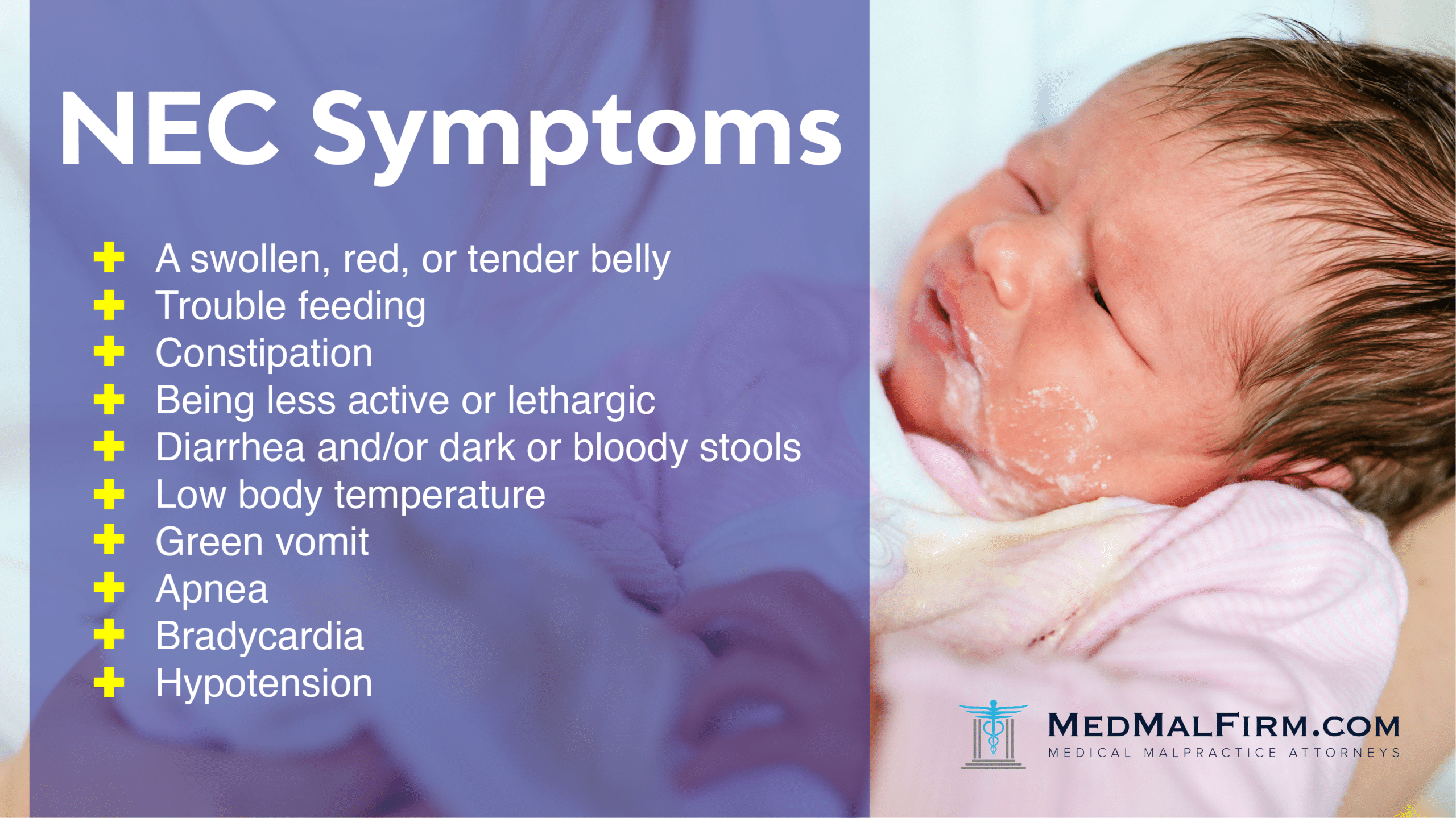
NEC Symptoms
Necrotizing enterocolitis, or NEC, is a serious illness that primarily occurs in premature newborns. NEC occurs when the tissue in the infant’s intestines becomes inflamed or infected. This can result in tissue death (necrosis), bowel…
Necrotizing enterocolitis, or NEC, is a serious illness that primarily occurs in premature newborns. NEC occurs when the tissue in the infant’s intestines becomes inflamed or infected. This can result in tissue death (necrosis), bowel perforation, sepsis, and sadly, death. It is incredibly important that parents and healthcare providers recognize the risks and know what NEC symptoms to look for.

Symptoms of NEC in Premature Babies
The symptoms of NEC can vary somewhat depending on the child and his or her overall health. Generally, symptoms appear in the first two weeks of life. Parents and healthcare providers should take action right away if a newborn experiences the following:
- Swelling or bloating of the infant’s abdomen
- Food that is not moving through to the intestines
- The infant has difficulty eating
- Presence of green fluid (bile) in the infant’s stomach
- Blood in the infant’s bowel movements
- Constipation
- Lethargy
- Low body temperature
Because NEC can lead to infection or sepsis, parents and healthcare providers should also be aware of signs of infection. Some signs of infection in premature newborns include:
- Apnea (breathing that stops and starts again)
- Slow heart rate
- Low blood pressure
- Lethargy
These symptoms are similar to symptoms of many other conditions. However, if your child has a combination of NEC symptoms, your healthcare provider should take action right away.
Importance of Recognizing NEC Symptoms
NEC is a condition that requires immediate medical care. It is crucial that parents alert their healthcare provider if their child exhibits signs of NEC. Most cases of NEC occur while the newborn is still in the hospital, however, which is why it is so important for healthcare providers to carefully monitor newborns who are at risk.
Immediate treatment of NEC is the best way to reduce the risk of complications or death. Sadly, around 50% of infants with NEC do not survive the illness. Many infants who do survive suffer from long-term complications like short bowel syndrome. Infants who suffered oxygen deprivation at birth may also suffer from conditions like cerebral palsy.
All of these conditions are life-changing for infants and their families. The reality is that many cases of NEC can be prevented with proper monitoring and feeding protocols.
Does Feeding Cause NEC?
Feeding itself does not cause NEC. However, there is a growing body of research that suggests feeding premature newborns cow’s milk-based formulas increases the risk of NEC. Cow’s milk-based formulas are common, and sometimes encouraged. The truth is that premature infant’s do not have the immune and digestive systems needed to process cow’s milk proteins. As a result, bacteria builds up and can lead to NEC.
Research also shows that feeding premature infants strictly human milk reduces the risk of NEC substantially. This has lead researchers and experts to recommend prioritizing human milk in hospitals and neonatal intensive care units (NICUs).
Does Your Child Have NEC?
If your child has been diagnosed with NEC and he or she was fed cow’s milk-based formula, contact us to learn more. Many families are exploring their legal rights and possible options for pursuing compensation for the injuries their children have suffered.
If you would like to know more about NEC and your legal rights, give us a call at 877-887-4850. You can also reach out to us online via our contact form. We offer free consultations to every potential client.
